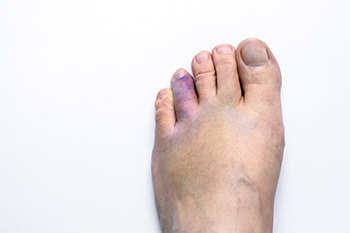
Plantar fasciitis is an affliction of the foot that you might already have heard of, even if you are a novice to the field of podiatry. This is because it is one of the most common foot conditions that can cause patients heel pain or pain in the arch of the foot. It is caused by the inflammation of the plantar fascia, which runs along the sole of the foot. There are many different ways that a medical professional like a podiatrist might advise you to go about treating this condition. One technique that a podiatrist might recommend is gently rolling your foot over a foot roller, cold water bottle, or tennis ball. The point of repeatedly rolling the arch of your foot over one of these objects is to stretch and provide relief to the arch of the foot. If you are someone who is living with plantar fasciitis and you are searching for relief, it is suggested that you contact a podiatrist today for more details.
Plantar fasciitis can be very painful and inconvenient. If you are experiencing heel pain or symptoms of plantar fasciitis, contact one of our podiatrists from Illinois . Our doctors can provide the care you need to keep you pain-free and on your feet.
What Is Plantar Fasciitis?
Plantar fasciitis is the inflammation of the thick band of tissue that runs along the bottom of your foot, known as the plantar fascia, and causes mild to severe heel pain.
What Causes Plantar Fasciitis?
- Excessive running
- Non-supportive shoes
- Overpronation
- Repeated stretching and tearing of the plantar fascia
How Can It Be Treated?
- Conservative measures – anti-inflammatories, ice packs, stretching exercises, physical therapy, orthotic devices
- Shockwave therapy – sound waves are sent to the affected area to facilitate healing and are usually used for chronic cases of plantar fasciitis
- Surgery – usually only used as a last resort when all else fails. The plantar fascia can be surgically detached from the heel
While very treatable, plantar fasciitis is definitely not something that should be ignored. Especially in severe cases, speaking to your doctor right away is highly recommended to avoid complications and severe heel pain. Your podiatrist can work with you to provide the appropriate treatment options tailored to your condition.
If you have any questions please feel free to contact our offices located in Wheeling and Berwyn, IL . We offer the newest diagnostic and treatment technologies for all your foot and ankle needs.










